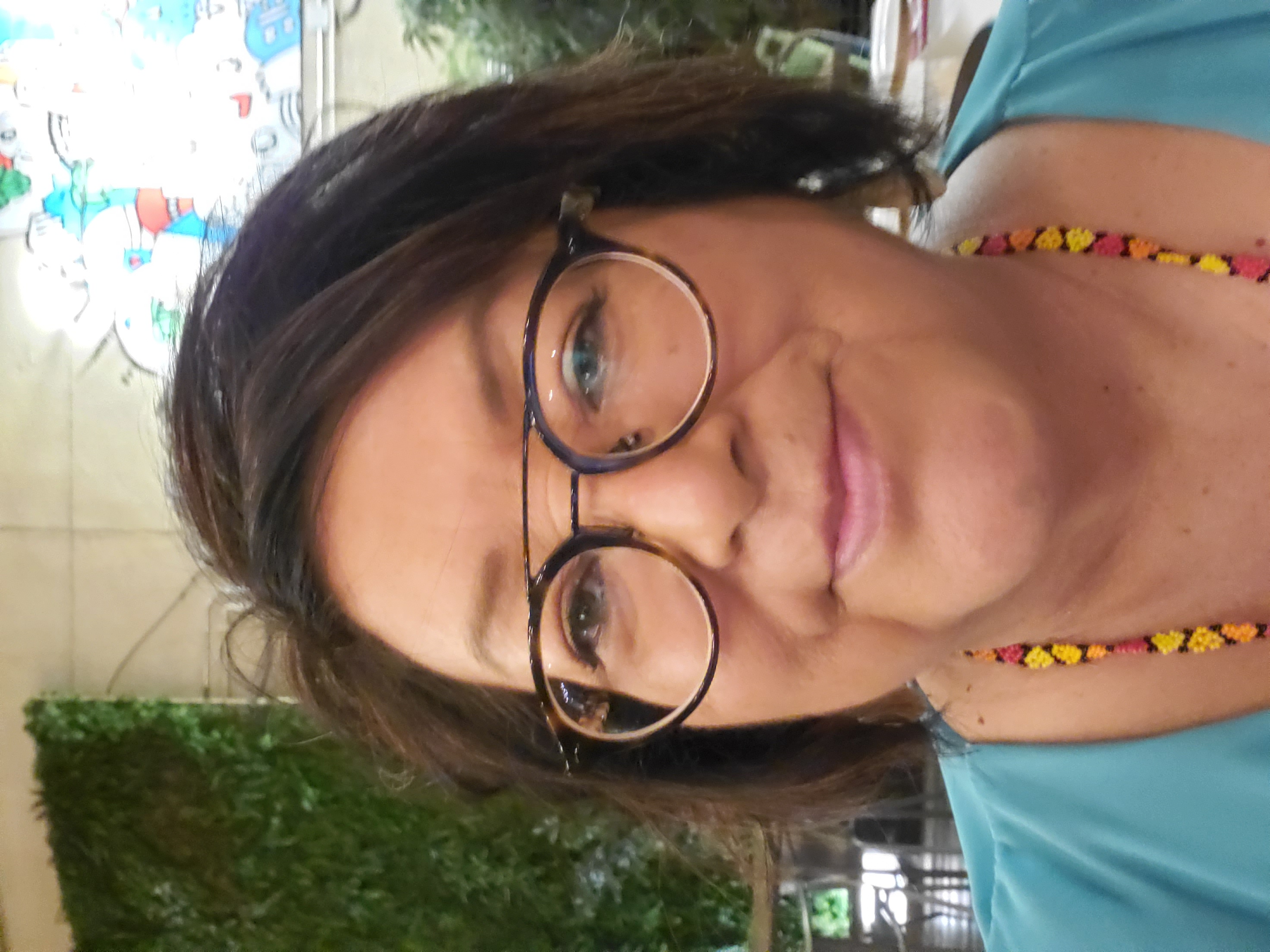2020 Graduate Profiles
The 96th Annual Convocation of St. Stephen's College
Post-Master's Art Therapy Diploma
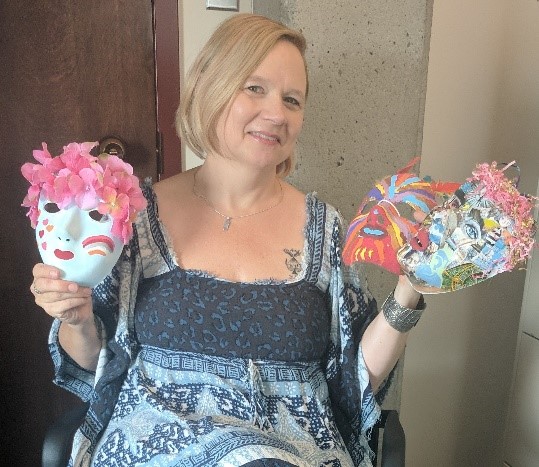
Patricia Pryma
I have an RN and PhD and I am excited to be graduating with a Post-Master’s Art Therapy Diploma. I have a passion for promoting mental health and wellbeing in my current role as Associate Professor at Mt Royal University in the School of Nursing and Midwifery. I plan to continue this aspiration working with children, youth and adults engaging in Art Therapy with my own private practice “You Create”. I possess a unique ability to work with clients where they are at and see individuals as unique and in charge of their own life-path. I look forward to working with clients with the inspiration; "You Create" new possibilities on your life journey.
Favourite SSC Memory: My fondest memory is working alongside my colleagues in the Art Studio learning and transforming my world view to that of an Art Therapist.
Master of Psychotherapy and Spirituality
Angela Davis
I truly appreciate the MPS program in helping me find my Hakomi self in relation to the field of counselling psychology. The challenges toward growth were many and though the discomfort was, at times, nearly unbearable, I am grateful for the experience. With a deep commitment to non-violence, I was intent on parsing out the nuances of power in relation to therapeutic work and to ethical standards, which then culminated in my capstone project. With many complexities affecting the continuum of care, and varying perspectives on ethics education, this recurring theme will continue as a place of interest for my lifetime. Carrying over into my professional life as a Registered Clinical Counsellor in BC, I see myself expanding my knowledge further through specific education. For example, to work with trauma, I will train in Sensorimotor Psychotherapy, which draws on the Hakomi method, attachment theory, somatic therapies and neuroscience. I am committed to finding creative ways within my practice to support my communities to decolonize in thought and action. I am also dedicated to educating myself and others about diversity, equity and inclusion toward a more humankind.
Capstone Title: Cultivating Ethical Personhood: An Experiential Webinar and Workshop
Capstone Abstract: The power differential is a concept which graduate students are meant to comprehend without education about power or its application in the therapeutic setting. There is a dearth of literature focused on responsible use of power. Ethics educators and codes of ethics offer an education with an emphasis on minimum standards. The attention in this paper turns to tangential topics, including self-awareness, personhood, the therapeutic relationship, and caring, as steps to a broader view of power. The focus then shifts toward enhancing ethical competency through experiential education. An interactive webinar and accompanying workshop were created to cultivate ethical personhood, which includes a section explaining why experiential learning can enhance the existing ethics education. This is followed by an integrative paper detailing the author’s learning journey through this program.
Favourite SSC Memory: Only in hindsight can I say that my favourite moments at SSC were around having my assumptions shaken. I had numerous assumptions about staff and faculty being judgmental, all born from my fear of not being good enough or not belonging. These were mostly turned upside down by generosity of spirit, and kind, constructive dialogue. This shift was also made possible through the camaraderie and caring accompaniment of my peers.
Future Ambitions: Experiential learning for developing ethical competency is the key to a robust and heart-centred culture of psychotherapy. I hope to take Cedar Barstow’s Right Use of Power training, eventually becoming a teacher to formally share this essential work on the use of professional and personal power. This will also serve in my next aspiration in becoming a counselling supervisor.
Stacey Gheyssen
I come to the profession of counselling with a background in Yoga philosophy and Catholic spirituality. This interspiritual lens was one of the reasons that I was drawn to choose the Master of Psychotherapy and Spirituality program. I couldn’t imagine studying to be a counselling therapist without interweaving spirituality at every step of the process. I have a special interest in hospice and palliative care as well as grief and bereavement. I had the opportunity to do part of my practicum as a grief counsellor. I took the inaugural offering of the course “Grief and Loss across the Life Span”, as an elective in the MPS program, and I studied Clinical Pastoral Education in the palliative and surgical wards at St. Paul’s Hospital in Saskatoon. In addition, one of the ways that I express my spirituality is through chanting, and so I chose this as the focus of my capstone project.
Capstone Title: Chanting for Resilience, Chanting for Compassion: A Guidebook for Counselling Therapists
Capstone Abstract: In this capstone project I take a giant leap into the science of The Polyvagal Theory with the goal of bridging it with the spiritual world of chanting. My motivation for doing this comes from a realization that counselling therapists, and many others in the helping professions, need a robust self-care practice that they can apply during their busy work lives. I propose that the spiritual practice of chanting can be this self-care practice. Chanting is a neural exercise which strengthens vagal tone, thereby increasing resilience and providing a neural platform for compassion. In this capstone project I introduce a polyvagal-informed practice of listening to chants and then chanting. It can be practiced in under ten minutes in any quiet and safe location with minimal preparation. In the literature review I explain the need for a self-care practice of this kind. The focus is on preparing the person of the counselling therapist for therapeutic encounters in which they will experience empathetic distress. After providing the rationale and literature review, I present the guidebook itself which includes recordings of the chants. Finally, I reflect on my learning journey, professional development, and the description, development and integration of my spiritual approach in an integrative paper.
Favourite SSC Memory: During my time at St. Stephen’s College, I have enjoyed the opportunity to research and write about my spiritual approach and its integration into the practice of psychotherapy. Rather than one specific memory to highlight, I can point to several times when I felt that my personal and spiritual growth was enhanced by this process.
Future ambitions: I have just been hired as a Spiritual Care Practitioner at the Hospice at Glengarda, Saskatchewan’s first free-standing hospice in Saskatoon. It is slated to open later this year. In addition, I hope to open a virtual counselling practice focusing on grief and bereavement. Finally, this fall I will also be producing a series of online workshops based on my capstone project.
Glenda Sartore
I am currently setting up my private practice, with a focus on serving those in need of lower cost counselling. I look forward to supporting individuals and couples as they meet the ordinary and extraordinary challenges of life. I am particularly interested in working with people to heal trauma, traverse the terrain of grief, and seek solutions for depression, anxiety, and relationship issues. I am passionately curious about my clients and devoted to assisting each of them in finding their best selves and best life! It is my full intention to provide counselling sessions, in some capacity, well into my 80’s!
Capstone Title: Creating a Patient Intensive Care Unit Journal to Mitigate Posttraumatic Stress Disorder
Capstone Abstract: Today, thanks to advances in science, medicine, and technology, 80% of Intensive Care Unit (ICU) patients survive their illness and treatment in the ICU. Of these survivors, it is estimated that 29% (Davydow, Gifford and Needham, 2008) live with posttraumatic stress disorder (PTSD). Although PTSD following ICU treatment is well known within the medical community, little is being done in Canada to help ICU survivors with the psychological wounds incurred in the process of invasive life-saving treatments (Kredenster et al., 2018). In response to this reality, and my personal experience as an ICU patient and survivor, I created a Patient ICU Journal, as a tool to help mitigate post-ICU PTSD. This project is inspired by ICU diaries, written by medical staff and commonly utilized in Europe to help ICU patients with PTSD. The Patient ICU Journal is written and maintained by the patient’s loved ones and is based largely on the psychological theories of Narrative Therapy, Cognitive Processing Therapy, and Humanistic-Existential Therapy. It is intended to be a tool for ICU survivors to heal ICU related trauma with the support of a mental health professional. This manuscript includes a literature review, a detailed description of the Patient ICU Journal, and strategies for implementation in ICUs. As well, reflections on my learning journey at St. Stephen’s College and through the capstone process follows. This work concludes with a reflection on my personal, spiritual and professional growth.
Favourite SSC Memory: Mostly I remember the depth of connection in discussion groups in the downstairs classroom. Wheeling the roller chairs into small groups and pondering together. I loved that we were encouraged to incorporate ourselves personally into the discussions, making the process rich and wholistic, far beyond an academic endeavour.

Pamela Smid
As a MamaBear to three precious souls, spouse, educator, daughter, sister, and friend, my life is brimming with opportunities to connect, collaborate, and create. I am an enthusiastic life-long learner, perpetually inspired to learn more about who we are, why we’re here, and how we can work together more productively and compassionately. With two little girls at home, and after spending almost ten years in the classroom as a senior high teacher, I began my journey at St. Stephen’s College five years ago, inspired to learn and grow both personally and professionally. During that transformational time, my growing girls now have a little brother chasing them around the house, I transitioned into the role of a guidance counsellor, and I am excited to see all the ways my SSC training will open new doors of possibility. My thesis research into the ways spiritual self-care can uniquely enhance holistic self-care practice will supplement the mental health supports I offer as a guidance counsellor, as well as offer a foundation for my private practice work.
Thesis Title: Spiritual Self-Care: An exploration of how spirituality shapes holistic self-care practice
Thesis Abstract: The second commandment instructs to “love your neighbor as yourself” (Mark 12:30–31, New International Version); this declaration implies loving the self is a necessary prerequisite of loving others. Self-care is behaviour designed to promote self-love and foster overall health and wellbeing. The benefits of tending to physical and mental health are typically understood. Spiritual self-care, however, is often ambiguously conceived outside of mainstream religious practices. Recent statistics report that more Canadians are aligning with an individualized spirituality as opposed to religion. This growing demographic of individualized spiritual seekers may be interested to learn about the myriad ways to tend to spiritual health beyond religious practices, particularly since research is suggesting that spiritual self-care can assuage many of the afflictions plaguing Western culture today. The field of psychotherapy may also benefit from gaining insight into the ways spiritual self-care can promote holistic health and wellness in both the therapist and the client. This inquiry was designed to explore the ways that four co-researchers conceive of spirituality and practice spiritual self-care as part of a holistic self-care regimen. Interpretive phenomenological analysis methodology was used to explore the ways the co-researchers make meaning of their experiences with spirituality. The findings suggest that engaging in spiritual self-care practices offer unique benefit to promoting overall health and wellness. For this reason, psychotherapists are well served to incorporate spiritual self-care into both personal and professional practice.
Favourite Memory: St. Stephen’s College has been a supportive and sacred space for me; I am leaving a more whole and grounded human being. As this chapter closes, I am grateful for the wise and caring guidance of the instructors, the encouragement of fellow SSC students, and the welcoming nature of all who are part of the SSC family. Fond memories of my time during intensive training include the rituals and artistic expression incorporated into classes and the countless opportunities to learn from the diverse experiences of the SSC family. The memory I will cherish most is working with my wise and inspiring supervisor, Dr. Leslie Gardner, through the thesis process. Throughout this journey, and the experiences of birth, grief, loss, and the global pandemic we have shared along the way, our treasured conversations about spiritual self-care have nourished my soul and motivated my work.
Future Ambitions: In addition to continuing my role as a guidance counsellor, I aspire to use my SSC training and the additional Enneagram training I am currently completing, to offer private practice services to those interested in learning more about how to incorporate spirituality and spiritual self-care practices into their lives.
Master of Psychotherapy and Spirituality (Art Therapy Specialization)
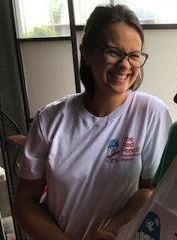
Michaela DeVries
Capstone Title: Art Therapy in Pediatric End of Life Care: A Manual for Health Care Professionals
Capstone Abstract: This capstone project is a guided outline of the profound developments of art therapy with pediatric patients at the end of life. This capstone demonstrates the development of a manual for health care professionals who work in end of life care, in which information about the benefits of art therapy for pediatric end of life care is offered. The literature review outlined the statistics of terminal illness and end of life care, as well as an in depth look into the goals of end of life care, specifically in Canada. The literature also highlighted the evidence of art therapy work in pediatric end of life care and offered four categories; symptom management, increasing locus of causality, acceptance, and saying goodbye. The literature review demonstrates the importance of interdisciplinary teams in end of life care and provides evidence for the importance of a comprehensive manual about art therapy for members of a child’s health care team. The applied project presents an introductory manual for professionals to better understand basics of art therapy and special considerations for art therapy when working with the pediatric end of life population. The manual, modelled after the aims of the literature review, also provided comprehensive literature, case and session outlines, and artwork for varying age demographics. Finally, the integrative section reflected my thoughts, feelings and developments in my learning, capstone process, and professional and spiritual practice.
Favourite SSC Memory: Over the last 4 years, St. Stephen’s has offered a space for my unravelling and my rebuilding. My favourite memory of St. Stephen’s is not just one but is a compilation of experiences where I felt something deeply in studio and had integrative moments in the library. There are many memories of St. Stephen’s that I hold close to my heart and my most precious day so far was held in the library. Last October, St. Stephen’s graciously agreed to host their first wedding. It seemed fitting that the space where I had spent the last 3 years diving into the great mystery of life would also become the space for my husband and I to take our vows.
Finally, through the tumultuous times of a rigorous degree, I leave four years later a new person, newly birthed into the life that was always meant to be mine. St. Stephen’s has been a place of great growth, of which I know fundamentally makes me a more rooted and authentic practitioner and human being. For that transformation I am forever grateful.
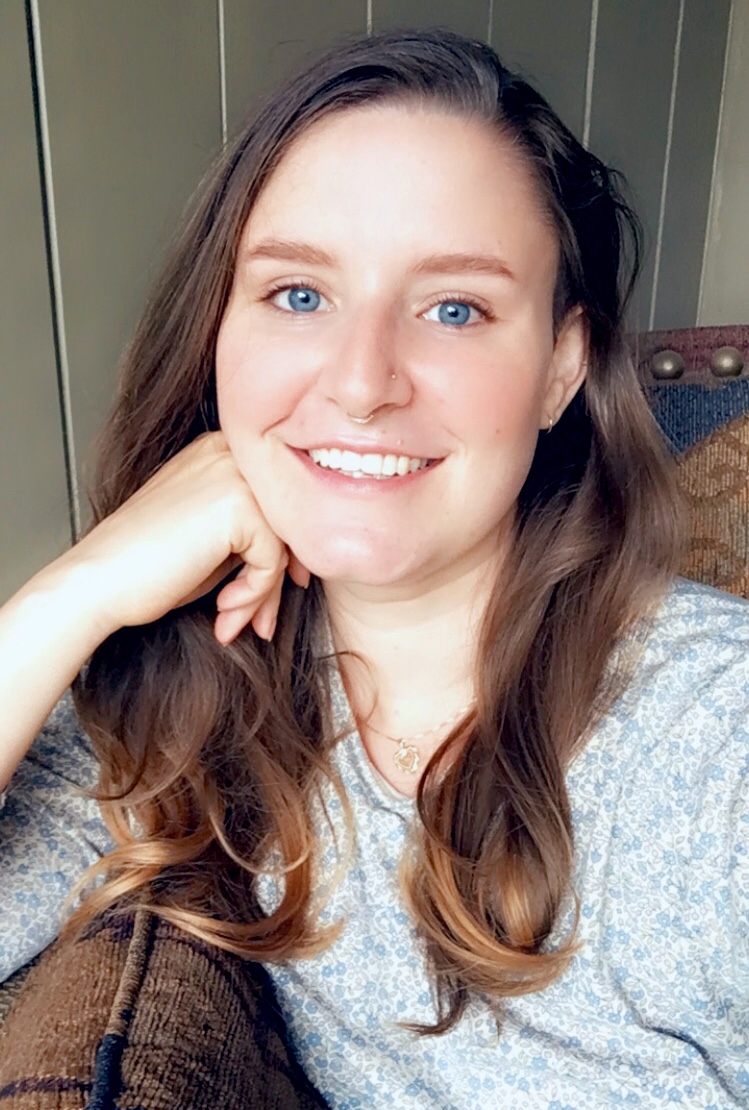
Samantha Diminutto
I did it! I survived four rigorous years of thick books, long papers and daunting deadlines. I’m finally done, and I’m honestly shook! The time spent in this master’s degree were the toughest and most transformative years of my life. Four years ago, I entered this program all bottled up and full of anxiety. I leave now with a precious, subtle sense of authenticity and confidence. I see the world through the whimsical eye of an artist. I seek deep conversation and warm hugs, and I live for the chaotic whirlwind that is my imagination. I am grateful to have stumbled into art therapy, Jungian theory, and with it, the life changing knowledge I have acquired, the precious memories I have made, and the relationships built here at St. Stephen’s College.
Capstone Title: Shadows: A Video game Concept and Game Guide for Theraputic Use
Capstone Abstract: The focus of this capstone project was to create a video game for therapeutic use in exploring identity with emerging adults. The literature within this project contextualizes the changes and challenges faced by emerging adults, indicating that there has been a shift in identity formation. Emerging adults today are a self focused demographic in which it is necessary to explore identity through intimacy in order to successfully transition into adulthood. The applied project was therefore created to be used as a tool to aid in the exploration of identity with this demographic. The applied project consists of a video game concept grounded in Carl Jung’s theory of the shadow, and a game guide for therapeutic use in the context of narrative therapy. The project is grounded in themes within Joseph Campell’s (2008) “The Hero’s Journey” as it is a natural fit with developmental challenges and speaks the symbolic language of the unconscious.
The applied project is a response to gaps in the literature which identify a need to expand the research on the effectiveness of video games as a therapeutic tool. Video games can be useful in therapy because that can be designed to support the task of the therapist, while the mechanics can be encoded with meaning. In the context of narrative therapy, video games can provide a symbolic space to identify and reframe life problems. Though video games are currently not a common tool in therapy, their usefulness is undeniable. Integrating video games into therapy may therefore be a logical step in the evolution of therapy and the video game industry.
Favourite SSC Memory: My favourite memory from this journey is, without a doubt, the process of painting the cherry blossom mural in the St. Stephen’s common room. I was accompanied by a small group of my fellow students and together we stayed late after class multiple evenings in a row. We ate food, told stories, laughed and made a mess! It was glorious. Each time I find myself in the common room I see the mural and smile, remembering the lovely humans I shared this experience with.
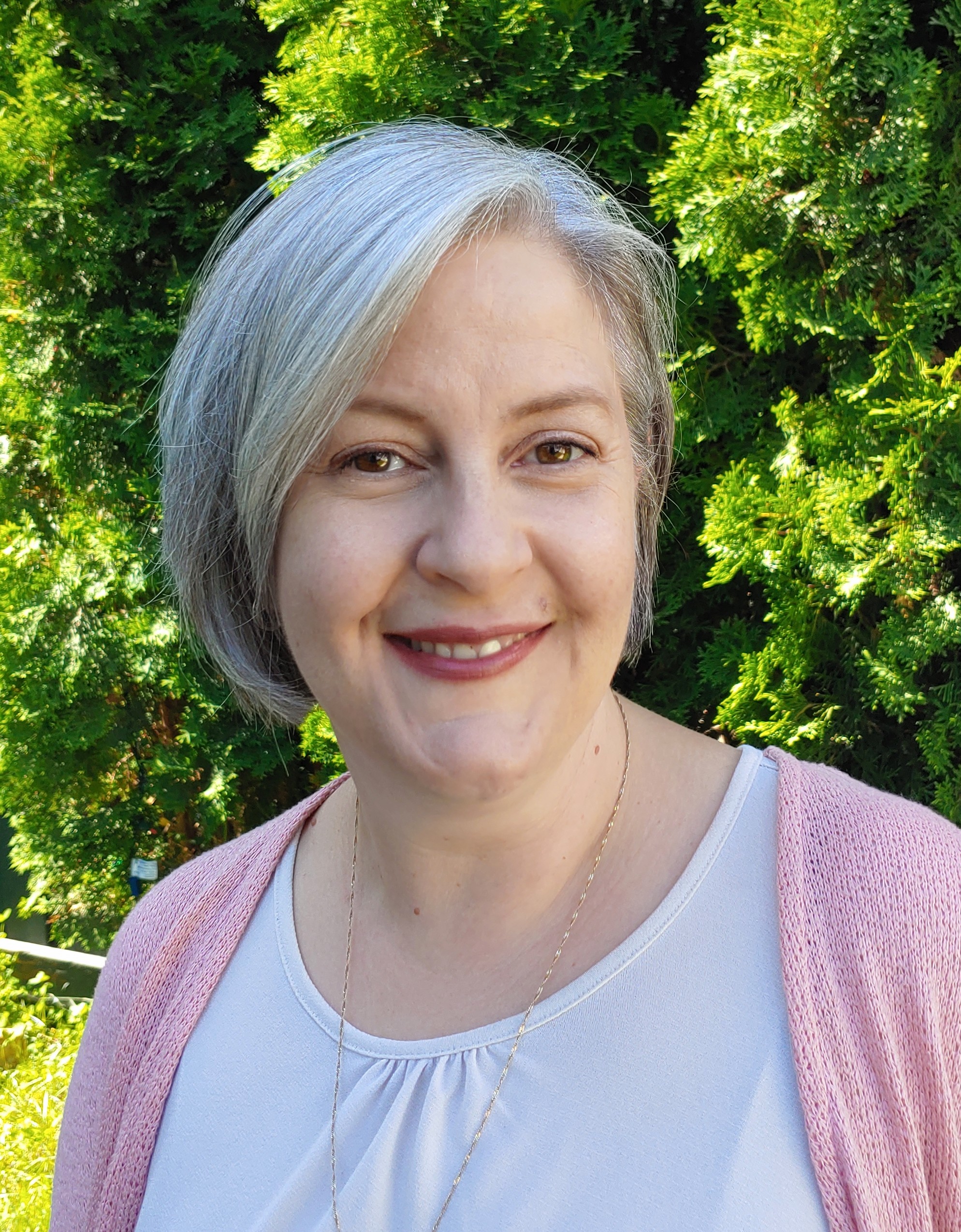
Cheryl Horn
As a person who places great importance on the spiritual aspects of life, I was thrilled to discover the art therapy program at St. Stephen’s College, where spiritual reflection is part of every class offered. For many years leading up to starting my studies at St. Stephen’s, I worked (and still do!) as a children’s ministry director, and I love working with children. Thus, as I finished my MPS-AT degree, it was with great pleasure that I accepted an offer to work part-time as the art therapist at the Little Warriors Be Brave Ranch, a trauma-informed treatment centre focused on helping children and adolescents who have been sexually abused. The opportunity to help children make positive changes early in their lives, which lead to long-term benefits in many areas, is something I find energizing and very meaningful. I am a person with many interests though, and on the other side of the lifespan I have always been very interested in working with elderly adults. This interest is what inspired my capstone project, in which I developed a guidebook for facilitating art therapy groups with elderly adults. In the future, I plan to put this guidebook to use, and look forward to putting the research I have done into practice.
Capstone Title: Drawing Out Our Stories: A Guidebook for Facilitating Arts-Based Life Review Therapy Groups with Elderly Adults
Capstone Abstract: The focus of this capstone project was to research art therapy and life review therapy; apply the literature and combine it with my experience of leading art therapy groups, and conclude with a reflection paper integrating my learning across my master’s degree studies and this capstone project. Reminiscence interventions were birthed when Dr. Robert Butler published a seminal article on the subject in 1963 called “The life review: An interpretation of reminiscence in the aged”. Since then, reminiscence work has been studied and applied in various forms by various professions such as nurses, psychologists and art therapists. In recent years a new category of reminiscence work, life review therapy (LRT), has emerged. LRT adds further structure to reminiscence interventions by adding in a psychotherapeutic theory (e.g.: narrative therapy, CBT). The goal of LRT is the amelioration of mental health issues, and it has been shown to be successful in this, particularly with those suffering from clinical depression. There has been very little work done in providing arts-based LRT, although it has been put forward that this approach would likely be very beneficial and that it warrants further study and development. The applied project of this research is: Drawing Out Our Stories: A Guidebook for Facilitating Arts-Based Life Review Therapy Groups with Elderly Adults. This guidebook is designed for art therapists to use in supporting groups of 5 or 6 elderly clients experiencing a depressive disorder through an eight-week group of arts-based life review therapy, drawing upon narrative therapy. It also provides guidance for meeting with and preparing potential group members before the group begins. The final section offers an integrative paper with reflections on my learning process, changes in my spiritual understanding of art therapy work, as well as a look forward at future applications of the capstone applied project.
Keywords: life review therapy, art therapy, geriatric depression
Favorite SSC Memory: As I was mulling over the many wonderful memories, the first one that came to mind happened during an art therapy theories class led by Tatiana Peet. The months leading up to this particular class were quite tough, with many personal issues needing attention. On top of this, the Saturday prior to class starting, my Grandfather passed away. Thus, I arrived in class with a heavy heart. The class had us working in the art studio every day, and part of the creative process that emerged for me included finger painting! This child-like, playful engagement with art media was exactly what my heart needed, and, once again, confirmed that I was following the right path in pursuing a career in art therapy.
Future Ambitions: As I embark on this new chapter of my professional life as an art therapist, in the immediate future, I plan to focus on honing my skills in working from a trauma-informed perspective in the work I do at the Be Brave Ranch. In the future, I hope to put the manual I created for my capstone to use working with an elderly population. One of the things I would love to do is write about the outcomes of doing this work, and in so doing, promote the field of art therapy.
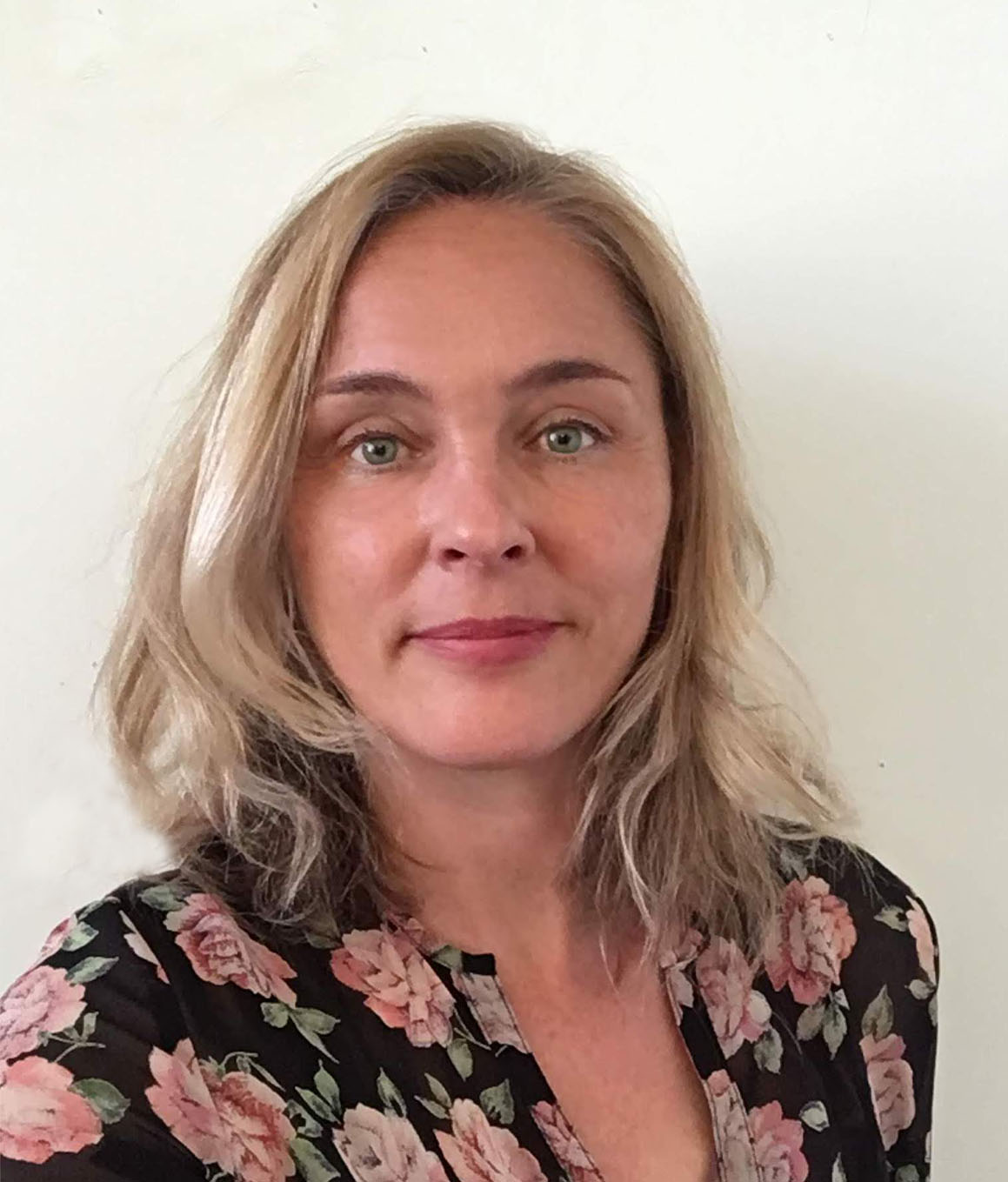
Annemarieke Jongeleen
I have a Bachelor of Arts from the University of Enschede (Holland), and am a certified practitioner and trainer in Focusing Oriented Counselling and Children Focusing Oriented Counselling from the New York Focusing Institute. I am also trained in Complex Trauma Therapy, Trauma Informed Art Therapy, Body Psychotherapy, Grief Counselling and Group Facilitation, and Play and Sandtray Therapy. I have many years of experience as a multicultural therapist in Europe, Israel and Canada. I have worked in private and public clinics with children, parents, and adults, focusing on family dynamics and presenting issues. I am specialized in complex trauma therapy, and have extensively worked with children and women living with traumatic experiences. During my internship at the University of Alberta Hospital Eating Disorders Unit I have become interested in Eating Issues and have focused my Capstone on the development of an Embodied-Relational Art Psychotherapy Model for working with this population.
Capstone Title: 'In My Body' Mapping the Lived Experiences with Eating Issues: An Embodied-Relational Art Psychotherapy Model
Capstone Abstract: Prevention, treatment and recovery from eating issues has proven to be largely unsuccessful in our current medical practice. Current global trends in prevalence are greatly disturbing: there is a general increase, globally, of people diagnosed with disordered eating patterns, emerging at a younger age. This Capstone project presents an invitation to view recovery from eating issues from a new perspective; research, prevention, assessment and treatment could include a broad evaluation of the individual’s experience of their embodiment - the lived experience of self, sexuality and spirituality -, sociocultural factors which influence that experience, and advocate for a change of perspective on disordered eating as a collective disorder of modern society. The practical application proposes a facilitator guidebook integrating embodiment, attachment and social justice paradigms. Included in this Capstone project are an integrative reflection on my personal experiences, spiritual approach and learning processes of my journey towards my Master’s in psychotherapy and spirituality with art specialization.
Favorite SSC Memory: This may sound weird, but my favourite memories of St. Stephen’s College are in its lounge. The lounge is a sunny, welcoming space on the second floor, filled with kitchen smells and the sound of voices. It's a safe place where students, staff and teachers meet as equals, sharing space, food, recipes, and most of all experiences. There is laughter, crying, joy, sadness, hope, and despair shared standing in the kitchen, sitting at the large dining table or on one of the comfy couches. Babies are being breastfed, while another shares their grief of losing a loved one, and another dives in deep into their struggles with an academic topic. It can all be there and becomes a shared experience. St. Stephen’s lounge symbolizes the College warmth, experiential learning, connectedness and deep self-inquiry way of learning, sharing and growing; academically, personally, professionally and spiritually. I will miss its lounge and will often think back of the many meaningful encounters I have experienced there that changed me forever.
Future Ambitions: I currently work as a counsellor at JFSE, a not-for-profit organisation where I have started working with this model, both in individual and group therapy, with people living with eating issues. I intend to continue developing the Embodied-Relational Art Psychotherapy Model for Eating Issues, and collect data from both individual and group work to continue my research. In the future I hope to be able to realize validated research and offer a new treatment model for this population. Furthermore, I am developing sponsored online programs in response to the current world pandemic in support of the many people that feel isolated, depressed, and are struggling due to their changed life situations. We are currently running online support groups for seniors and hope to open up groups for adults and parents all free of charge.
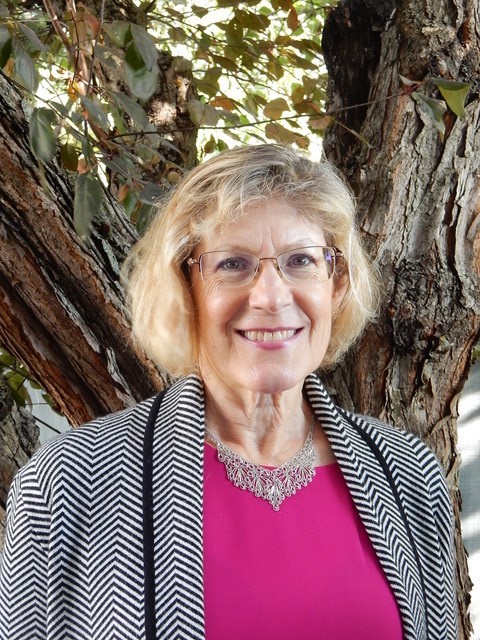
Mary Meyer
I am a graduate candidate at St. Stephen’s College for the Master of Psychotherapy and Spirituality (Art Therapy Specialization) degree in the Capstone stream, and will graduate in the Fall Convocation in November 2020. My art therapy practicum placements provided a wide range of opportunities and experiences that included the following: (a) individual art therapy sessions at an elementary school with children ages 5-12 who suffered from abuse, anxiety, attachment issues, and loss and grief; (b) group art therapy sessions at a private facility for sexual assault survivors ages 8-18; (c) open group art therapy sessions at an assisted living facility with seniors; and (d) group art therapy sessions for family members of individuals with eating disorders. My areas of professional interests are diverse but rooted in social justice principles for survivors of abuse and for marginalized populations of all ages, specifically the LGBTQ+ community. I use an eclectic theory-informed framework because tenets of feminist therapy, ecological systems therapy, person-centered therapy, and psychodynamic therapy resonate with me. My therapeutic approach is nature-based, trauma-informed, and gender affirming. I have an undergraduate degree in Early Childhood Education and worked as an educator for over 20 years combined in both St. Louis, Missouri and Edmonton, Alberta. I currently live in Edmonton with my husband; our two dogs, a Pomeranian and a Husky/German Shepard cross; and two rescued red-eared slider turtles. I love walking in nature with my family members, friends, and our pets. I am passionate about nature and art, and I believe in their healing powers.
Capstone Title: Fostering Children's Connections to Nature: Integrating Outdoor Experiences & Art Therapy
Capstone Abstract: Most children in urban areas are disconnected from nature due to a lack of unstructured playtime in it (Louv, 2008). In Canada, only seven percent of children and youth meet the daily activities requirements (National Wildlife Federation, 2012; Public Health Agency of Canada, 2011). Consequently, children’s physical, emotional, social and spiritual health are not optimal (Parks, Canada, 2014). Playing in nature helps children to develop an understanding of themselves as part of the world around them, to develop the ecological portion of their identities, and to achieve optimal overall health (Hillman, 1996; Kellert, 2002; Sobel, 1993; Thomashow, 1996). However, in recent times, children have little playtime in the outdoors because of our high-paced lifestyles in urban settings and lack of ample green space (Louv, 2008) and may need support to establish their ecological identities. Scholars suggest nature-based art therapy as one way to support developing an ecological identity; combining experiences in nature with art therapy can deepen children’s connections to nature and contribute towards their overall health (Atkins & Snyder, 2018; Kopytin & Rugh, 2017). To address the need for supporting children to develop ecological identities, I have created a oneweek summer day camp that integrates experiences in nature and art making. The day camp is designed for children between the ages of eight and eleven as the literature supports that this age group will benefit most from such experiences (Kellert, 2002). Because engagements with both nature and art are intrinsically healing, combining art therapy with nature experiences is key to begin to effectuate positive change for children’s relationships with nature and for their overall health (Atkins & Snyder, 2018; Berger, 2017; Kopytin & Rugh, 2017). Personal reflections on my learning journey are also provided in an integrative paper that describe my personal, professional, and spiritual growth.
Favourite SSC Memory: One of my most favourite memories at SSC was being part of a multi-aged, culturally diverse group of students who came together to learn. We shared stories and laughter and cried together. Friendships were formed, trust was developed, and connections were felt at soulful levels.
Future Ambitions: I intend to use my nature-based art therapy practice to help create communities where all humans and all non-human life forms and the things that support them share space with equity, diversity, and supportive environments.
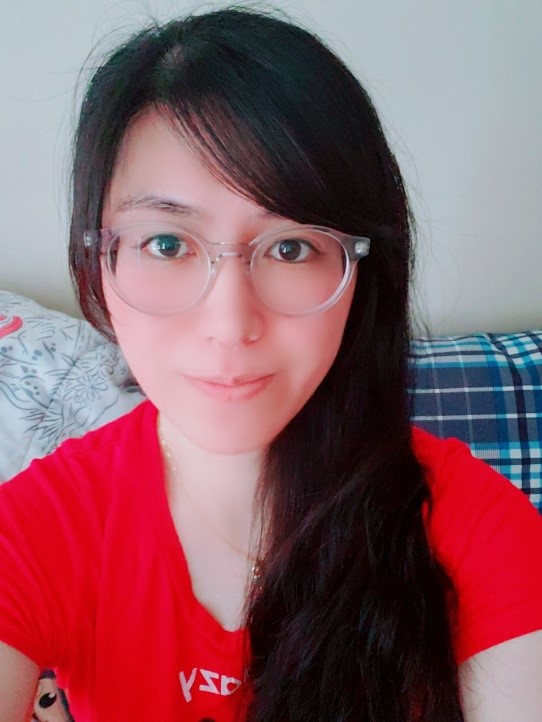
Tsz (Robyn) Tsoi
I entered the MPS-AT program at St. Stephen’s College after graduating with a Bachelor of Arts in Psychology degree from the University of Alberta. My academic involvement with art therapy and my passion for storybooks yielded my chosen research area for my Capstone project. My project included collecting and organizing information to effectively combine art therapy, narrative therapy, and bibliotherapy through storybook usage in therapy sessions. Basically, I really loved picture books, and wanted to find a place for them in my future practice.
Capstone Title: Reading with Children: A Storybook Guide for Art Therapists
Capstone Abstract: Storytelling in its various forms provide ways for people to connect, whether it is sharing life experiences, or conveying messages to the audience. For this capstone project, storybooks for children are the focus. Art therapy, narrative therapy, and bibliotherapy, are joined with developmental theories to form the background foundation for this project. This is further expanded on in the literature review portion. The applied project component attempts to fill the literature gaps practically, in an annotated bibliography format for thirty carefully selected storybooks. Project details and process will be explored deeper, with elements in all three sections. The integrative paper that concludes this project contains my spiritually integrated approach, for self-reflections, around the important milestones in my St. Stephen’s learning journey.
Favourite SCC Memory: There have been many memorable moments in my academic career at St. Stephen’s. One that stood out was when I participated in art therapy group supervision and all of us engaged in co-creating together. Our finished product may still be on the wall outside the lower floor’s washroom. I appreciated our combined imagination and creativity as we were offered a safe space to freely express ourselves, which resulted in a wonderful display of meaningful connections.
Future Ambitions: After graduation, I intend to search for art therapists’ jobs within agencies or organizations in a related field. My main focus is to work with children who have special needs. Through gaining experience and refining my practice, I can work towards registration. When I feel that I am ready to expand my horizons, I plan to look into opening my own private practice.
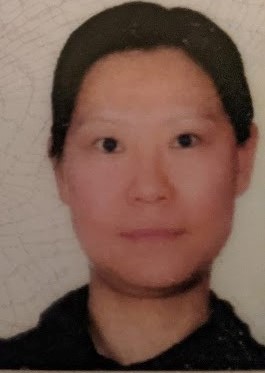
Fan Zhang
Professionally, I had been a teacher for ten years and have been working in the child protection field since 2011. Academically, I have a degree in History and a degree in Social Work and I am going to receive a master’s degree in art therapy from St. Stephen’s College in 2020. When studying psychotherapy theories at the College, I consistently reflect on personal and professional experience to explore and identify how the theories might or might not apply to my experience and situations; this has been a process of synthesizing the academic learnings above with my personal and professional experience. I am interested in various psychotherapy theories and my practice as a future Art Therapist is solidly founded on those theories. My research and practice focuses on prompting an individual’s resilience, as resilience is the one of the most important channels for promoting mental health and problem-solving and can lead to a low score in psychological issues. Spirituality plays a significant role in an individual’s identity and psychological well-being and provides foundation for resilience. As I have been working with children and I am passionate about children’s well-being and development, I have paid great attention on developmental stage theories to deeply understand children’s cognitive and psychological developmental needs. Overall, I have developed theoretical knowledge and clinical skills to conduct traditional talk therapy and creative art therapy and am looking forward to supporting clients as an Art Therapist.
Capstone Title: Building Resilience: Soaring Eagles Project for Left-Behind Children (LBC) in China
Capstone Abstract: The term “left-behind children” (LBC) refers to children in rural areas of China whose parents have migrated to cities to work, and who are left in their home villages (Ye, 2011; Lv, 2007). LBC need therapeutic support, but such services have been absent. This capstone project includes three chapters reflecting my journey of creating an Art-Therapy-based support service for LBC. Chapter 1 is the literature review on the studies about LBC’s psychological needs and possible Art Therapy theories and approaches that might benefit this population. Though there is no precedent of services and studies based on Art Therapy for LBC, it can be deduced that it would provide an adequate support for LBC by combining group open studio with Art Therapy theories relevant to spirituality, development stages, symbolizing, narrative, and resilience building. I name this theoretical combination spiritually integrated Art Therapy approach for LBC. Chapter 2 is the implementation of this approach for LBC; this chapter shows the project’s rationale and description including curricular and how I have built a partnership with Edmonton Chinese Baptist Church (ECBC) to create the Building Resilience: Soaring Eagles Project for LBC. The limitations and ethical concerns and solutions for these concerns are explored as well. Chapter 3 is the personal reflections through an integrative paper, in which I reflect on my spiritual development and approach, professional identity, and personal learning journey.
Favorite SSC Memory: The art therapy program at St. Stephen’s College is a blend of academic therapeutic course work, arts-based counselling course work, and experiential art therapy studio. One of my favorite things was to experience the art therapy studio after a lecture. The art therapy studio is a process to experience, explore, and witness the “wow” by integrating theories into the studio. I appreciate the playfulness and mystical elements in the classes, which often lead to trust and deeper discovery and learning. With the insight of seeking satisfaction and fulfillment in artwork, profound meanings in artwork and the artmaking process arise to give the artist new insights, awareness, and clarity. Another favorite memory is the group’s gathering during breaktime or lunch time when attending the intensive classes. The small kitchen, the big dining table, and the comfortable couches in the lunchroom always bring me warm feelings.
Future Ambitions: My future ambitions are to respond to vocational callings. I believe that God calls me to be an Art Therapist, who mobilizes the spiritual dimension to support children. I am passionate about the well-being of the left-behind children (LBC) (liu shou er tong 留守儿童) in China. So, one of my future ambition is to organize and deliver a spiritually integrated Art Therapy program to equip LBC to build resilience to overcome adversity and encourage the development of and a powerful sense of self-identity.
Graduate Certificate in Spiritually-Informed Psychotherapy
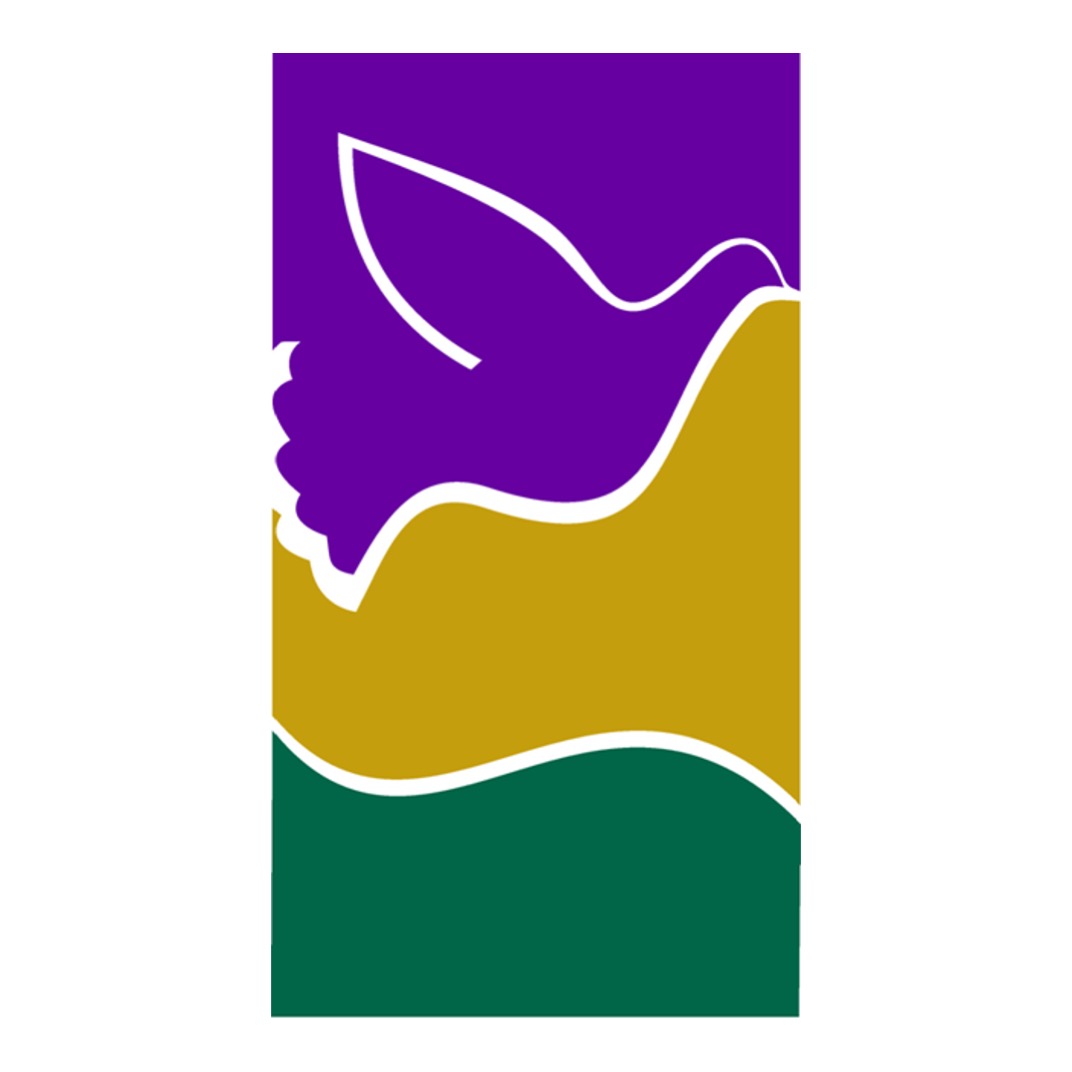
Nicholas Onyschuk
My current profession is a child and youth care worker. I’m still exploring the possibility of being a counselling therapist in the future and St. Stephen’s has provided me with an excellent start to that potential career.
Favourite SSC Memory: Getting to know my fellow student’s and the excellent discussions I had in class with them.
Roxanne Tootoosis
I am one of the Indigenous Knowledge Keeper/Facilitators at kihêw (eagle) waciston (nest) Indigenous Centre at MacEwan University. My research will resume in a narrative inquiry of Indigenous women in western Canada who have experienced the death of their child during the perinatal period. This research comes at a critical time when Indigenous communities are reclaiming, reviving and reintegrating culturally meaningful ways of attending to women. My strength of nehiyawewin, (Plains Cree culture) inclusive of the oral history, language, customs, traditions, ceremonies on the land will help facilitate this process in varying capacities.
Favourite SSC Memory: In class circle sessions.
Future Ambitions: To take the time to recover from my stroke so I can resume my academic studies.
Graduate Certificate in Theological Studies
David Faber
We extend our sincere appreciation to the diverse group of exceptional professionals and academics who selflessly contributed their time, talents, and wisdom towards the success of our graduands. This includes not only our Faculty, Associate Faculty, Staff, Board of Governors, and Academic Senate members, but also the following individuals who served as Supervisors, Dissertation Committee members, and Examiners: Kevin St. Arnaud, Shannon Byrnes, Dr. Katherine Vink, Roger Thiessen, Alison Fox, Marie Butler, Amanda Stillar, Jesse McElheran, Dr. Megan Hebert, Dr. Allyson Funamoto, and Dr. Leslie Gardner.
